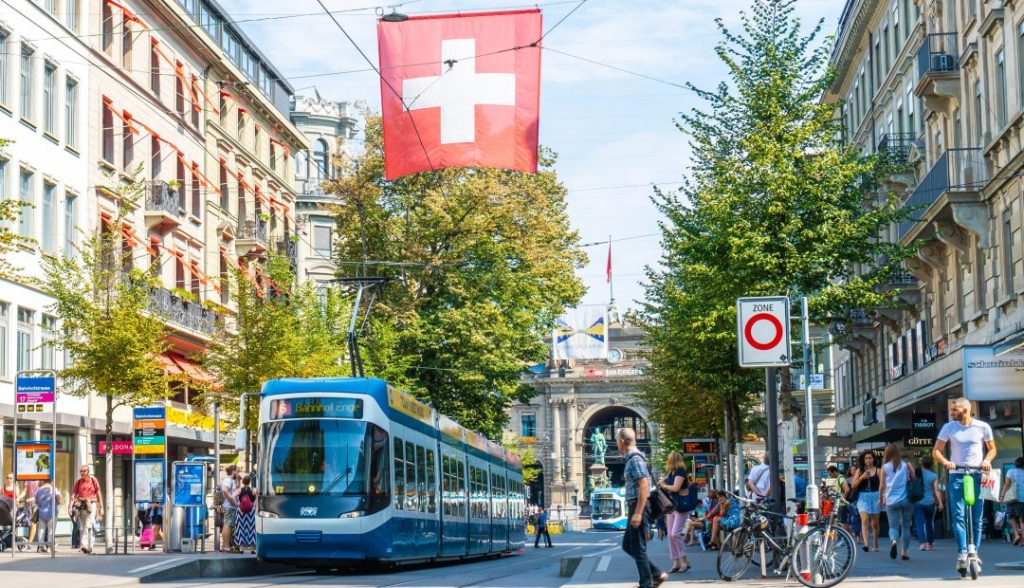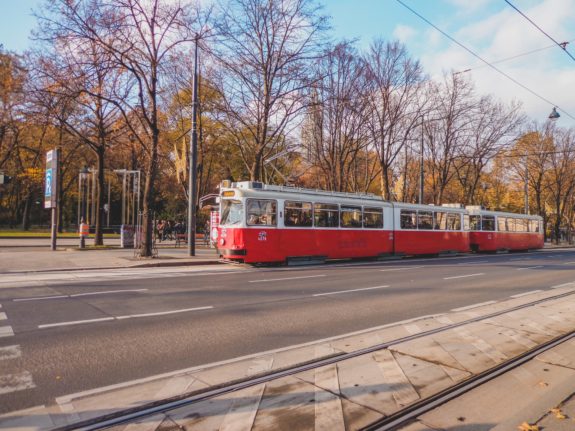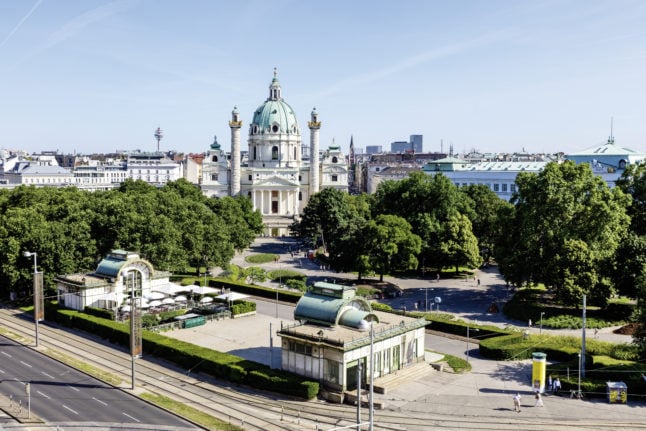Switzerland and neighbouring Austria have a lot in common, but there are many differences as well. How can you decide which country is better suited for you? Our comparison provides some answers.
Aside from Liechtenstein, which shares the same language (Swiss German), currency (Swiss franc) and a footbridge border with Switzerland, Austria is another nation that could be described as the most similar to Switzerland in many respects.
For instance, the two countries’ populations are nearly the same: about 8.9 million in both Switzerland and Austria, even though the latter is bigger in size: 83.871 square kilometres, which is more than twice the surface of Switzerland (41.277 square kilometres).
From our partners:
Also, both countries are neutral, and despite having Armed Forces, do not participate in conflicts or military alliances such as NATO.
Last but certainly not least, there is the matter of geography: both countries are mountainous, with the Alps covering about 60 percent of each nation.
This means they both have a well-developed ski culture and Alpine folklore in general.
However, speaking of folklore — though many tourists associate the lederhosen with Switzerland, these short or knee-length leather breeches are more likely to be found in Austria.
And now for the differences:
The most obvious one that immediately jumps to mind is that while Austria belongs to the EU, Switzerland does not. It is, instead part of the EFTA (European Free Trade Association), along with Liechtenstein, Iceland, and Norway.
This means different currencies (the Swiss franc in Switzerland and the euro in Austria) but citizens of both nations have access to each other’s labour markets, as is the case with all EU / EFTA nations.
Other than political affiliations, what is different about the two countries and, above all, which one might be better to live in?
Let’s look at the economy first.
At the end of January 2023, Switzerland’s inflation stood at 3.3 percent, while Austria’s was 11 percent – a record high, driven mainly by rising energy and fuel prices worldwide.
What exactly does it mean?
While Austria has been historically less expensive to live in than Switzerland, its much higher inflation level means the current cost of living disparity is not as great.
According to Numbeo, consumer prices are 69 percent higher in Switzerland than in Austria.
On the other hand, the purchasing power is 25 percent higher in Switzerland.
Why does a more expensive country have a higher purchasing power than a cheaper one?
This is because wages are more than twice as high in Switzerland than in Austria: The average monthly net salary is 5,484.54 euros (5’455.61 francs) in Switzerland, versus 2,429.38 euros (2’415.84 francs) in Austria.
Public transportation
Despite being smaller (in surface) than Austria, Switzerland has more railway tracks per kilometre: 5,690 km in total versus 5,800 km in Austria, which means that the Swiss train network is denser.
In terms of timeliness, both national railway systems have over a 95-percent punctuality rate.

In terms of public transport, the Austrian capital Vienna in particular is renowned for its offers, and other larger cities in Austria also have cheap and extensive lines of trams, metros and buses. Despite not being as dense as in Switzerland, the country’s rail system expands to all major cities, hubs, and touristic destinations – and a yearly ticket, the Klimaticket makes travelling in all public transport unlimited for €3 a day.

One of the famous Viennese trams. (Photo by Árpád Czapp on Unsplash)
Healthcare
The two systems are different.
Austria’s scheme like much of Europe’s, is tax based, with the government controlling funding, health insurance, and health providers.
Under Austria’s healthcare, certain portions of salaries are automatically deducted to fund the scheme. However, healthcare is free of charge for low-income people or those who who are disabled, studying, or retired.
In Switzerland, everyone must have a basic health insurance coverage and purchase it from one of dozens of private carriers.
It doesn’t come cheap — premiums are based on the canton of residence and age, costing 300 to 400 francs a month on average — but it is quite comprehensive; it includes coverage for illness, medications, tests, maternity, physical therapy, preventive care, and many other treatments.
Which of the two countries offers better access to healthcare?
According to The Euro Health Consumer Index (EHCI), which compared healthcare systems based on different data, such as patients rights, accessibility and the range of services, Switzerland came on top, with Austria scoring much lower.
Studies show that Switzerland also has one of the world’s shortest waiting times for doctor’s appointments and medical procedures.
So while the Swiss system is more expensive overall, it also seems to be more efficient.
Language and integration
While Austrian German and Swiss-German are not exactly the same, it can be said that they are distant cousins, with the former being closer to their common ancestor, High German or Hochdeutch.
If you learn German in your home country prior to moving to Austria, you will be able to find jobs and live comfortably anywhere in the country. However, speaking High German in Switzerland might not give you the same benefits, as many immigrants (and even native Austrians and Germans) can have trouble understanding and speaking Swiss German.
Additionally, Switzerland has four official languages – which doesn’t mean everyone speaks all of them. Depending on the region of the country where you move to, you might have to learn a whole different language: Swiss German, French, Italian or Romansh.
While speaking a national language definitely helps with integration, another difference between the countries is the sizes of cities. Despite having similar population numbers, Austria has a couple major cities with more than 200,000 people, including the capital Vienna with its 1.7 million inhabitants, but also Graz with 300,000 and Linz with just over 190,000.
In larger cities, some say it is easier to meet friends, integrate, find jobs in different fields and adapt without having to immediately follow the local Dorf (village) culture.
In comparison, Switzerland’s most populous city is Zürich, with just around 380,000 people.
Where is it better to retire?
We already established that, nature-wise, both countries offer comparably beautiful scenery, but which is better for pensioners?
In Switzerland, the average pay for married couples is 3,675 Swiss francs per month from the first pillar pension, not including additional benefits.
In Austria, it is about 1,294.56 euros (1,287.41 francs) for couples on basic pension payouts.
Despite disparities in living costs (as mentioned above), US News and World Report rated Switzerland in the second place in the world (and first in Europe) in terms of comfortable retirement.
Austria is in 15th place.

Quality of life
One of the main indexes for quality of life, the Economist Intelligence Unit’s, Global Liveability Index, consistently puts Austria’s capital Vienna in the first place worldwide. In 2022, Switzerland’s Zurich came in third.
The ranking evaluates several aspects considering stability (Vienna got 100/100), Healthcare (again, 100/100), Culture & Environment, Education (100/100) and Infrastructure (100/100), making the Austrian capital the “world’s most liveable city”.
“Stability and good infrastructure are the city’s main charms for its inhabitants, supported by good healthcare and plenty of opportunities for culture and entertainment,” the EIU ranking wrote about Vienna.
What’s the conclusion?
The decision is ultimately up to you.
While we have compared some basic categories, more detailed research is needed, according to your own personal criteria and goals, to decide which nation suits you best.
Whichever country you decide to make your home, you’re sure to have a great experience!
For enquiries, product placements, sponsorships, and collaborations, connect with us at hello@zedista.com. We'd love to hear from you!
Our humans need coffee too! Your support is highly appreciated, thank you!

